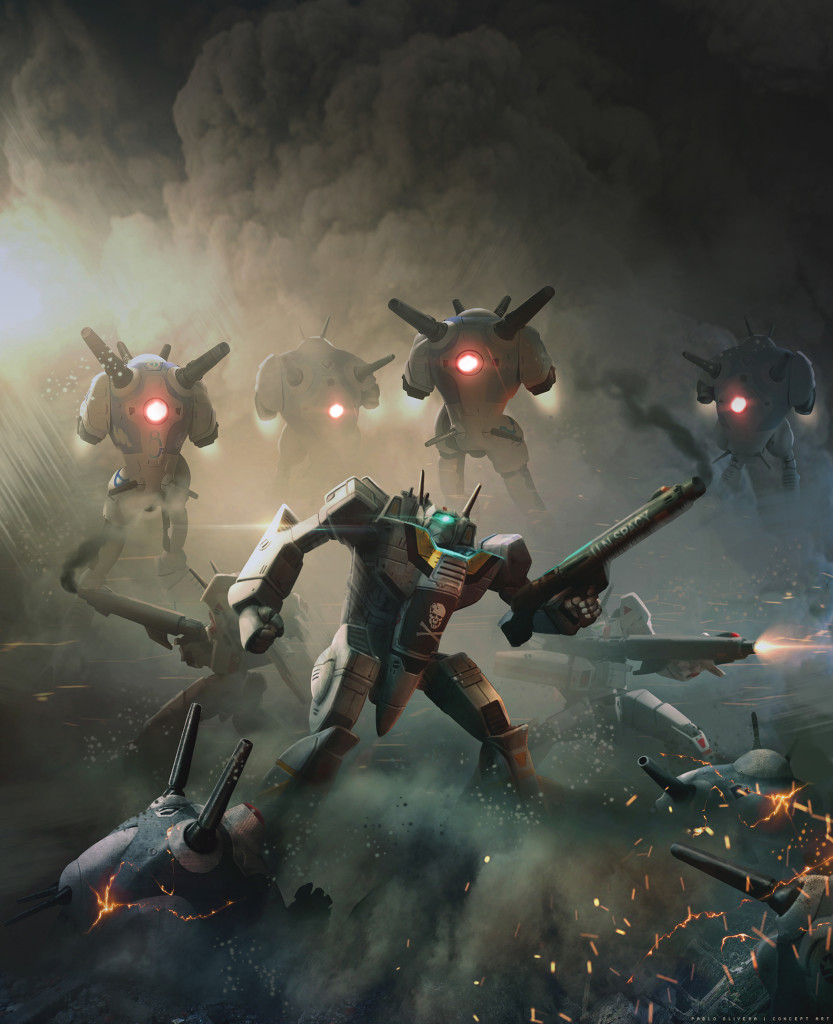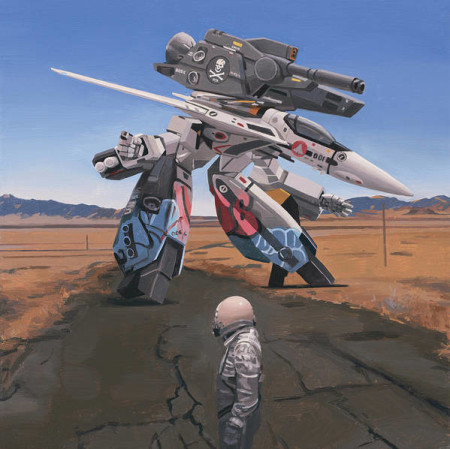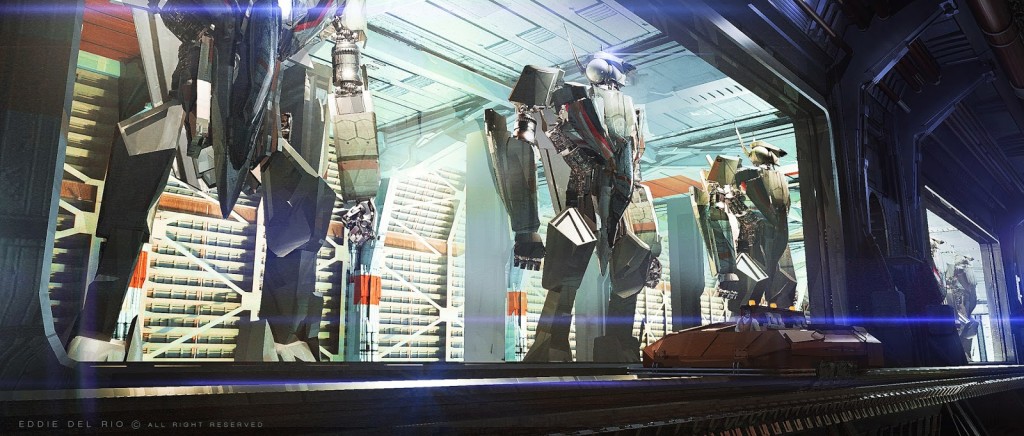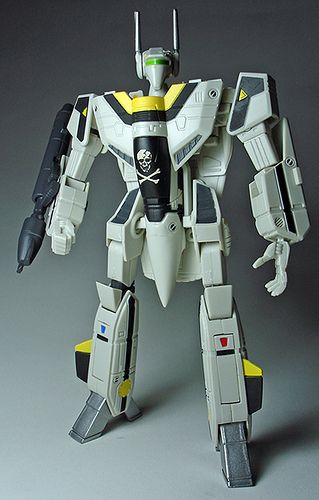Genre: Science Fiction
Premise: Two decades after three strange abandoned alien city-ships crash into earth, a mysterious secondary enemy attacks our planet, forcing us to protect ourselves with the crashed vessels’ unique alien tech (robotech).
About: Sony has the rights to make a Robotech movie. At one point, Andy Muschietti (“It”) was tasked to direct. The project is currently stalled but it’s a property Sony likes a lot so it should get made at some point. This draft was written by S. Craig Zahler, who currently holds the number 3 slot on my Top 25 with his western, The Brigands of Rattleborge.
Writer: S. Craig Zahler (based on characters/concepts by Shoji Kawamori)
Details: 145 pages
I know we still have to finish up Comedy Showdown, but I’d be lying if I said I wasn’t stoked for Sci-Fi Showdown!!! And when this script showed up in my Inbox, well, I couldn’t help myself.
Man, I loooooovvvvvvvved Robotech as a kid. I must have asked my parents a thousand times for the Robotech robot and got flat out denied each time. Instead they got me books. Wooopdeee doo. “Hey Baby Scriptshadow. I know you wanted that really cool robot that all of your friends would be jealous of but here’s a copy of Catcher in the Rye!”
Maybe this script will provide me with the joy I never received as a child.
One day, out of nowhere, three giant empty alien city-ships crash into our planet. One in Iceland, one in the Himalayas, and one off the coast of North Carolina. The ones in Iceland and the Himalayas explode on impact. But the one off the coast of North Carolina, while heavily damaged, manages to survive, resting out in the ocean.
Twenty years later, a global commission has sent a healthy group of individuals to live on the ship. Half of these people are mechanics, tasked with fixing everything up. The other half are military, there to study the unique vehicles in the city, which consist mostly of transformable airplane/robots called “Veritechs.”
Our main character is a mechanic named Hunter. He was recruited to come to the city by his military brother, Roy. The two just lost their father recently, and Roy is pissed that Hunter abandoned both of them. So let’s just say there’s a healthy dose of conflict in the family.
About 60 pages into the script, earth is attacked by an alien entity that’s been hiding out on the dark side of the moon. How long they’ve been there is anyone’s guess. But one thing is clear – they mean business. They start blowing up cities left and right. Hunter, who was once a pilot, ignores protocol and jumps into one of the Veritechs to fight off the aliens, which are known as Zentraedi.
The leaders of the planet do a little recon and discover the aliens’ plan. They’ve built giant thrusters into the moon so they can fly the moon away from earth, which will destroy all the tides. The oceans will wipe out all of life. Then, once humanity is gone, the Zentraedi will fly the moon back, re-establishing the tides, then take over earth for themselves.
What we eventually learn is that the Zentraedi were fighting some other mysterious alien race halfway across the galaxy. This race sent us these giant cities because they knew the Zentraedi were coming to wipe us out. Sort of like an intergalactic Amazon order. “Can you please send me one giant alien city with a couple of hundred transforming jet robots so I can protect my planet? Thank you. Wait, what are you talking about it’s not Prime. It’s not going to be here until next week??? Awww, come onnnn!”
What follows is a worldwide battle if there ever was one. We jump to the Arctic, we jump to Beijing, we jump to Taiwan. Hunter, not unlike Will Smith in Independence Day, becomes the best Veritech fighter. But will he be enough to take out an entire invading alien species? I guess we’ll find out!
I have a secret to share with you.
Even though I tell screenwriters never to write these large scale sci-fi screenplays (because they’re big and unwieldy and hard to manage), I LOVE the idea of large scale sci-fi. That’s what got me into this whole movie thing in the first place. Star Wars.
But I don’t think, since Star Wars, that I’ve read a single large scale sci-fi screenplay that’s worked.
The reasons are varied. The feature film format rewards tight timeframes and contained locations. Large scale sci-fi is the opposite of that. Then there’s the issue of creating a new universe out of whole cloth. In almost every iteration I’ve read of a screenwriter trying to do this, it ends up being a cheap copy of a movie that’s already been made.
I’d never tell you large scale sci-fi is impossible. But it’s whatever percentage it is that comes right before impossible.
However, if there’s any writer who’s got a shot at succeeding, it would be Zahler. I saw him create a universe out of whole cloth with The Brigands of Rattleborge. Granted that took place in the Old West. But it still exhibited the type of imagination required to tackle giant world-building.
Which is why I was so excited to read this script.
As is the the case with all of Zahler’s scripts, he takes his sweet time setting up the story. But unlike Brigands, which was clearly building towards a great sequence (the invasion during the storm), the buildup here is more expository in nature. Sure, seeing giant ship cities crash into earth is fun. But spending the next 50 pages setting up 20 different characters and the rules of the alien tech and what we’ve done since they’ve arrived got tiresome.
I supposed if you’re REALLY into the details of this mythology, it might be enough. But it reminded me a lot of Matrix Reloaded. Theoretically, going down into this underground city (Zion) and seeing how it operates should be interesting. But I, along with everyone else who watched that movie, was bored to death. We were ready to move forward a lot sooner than the directors were.
I get it. It’s hard to figure out with sci-fi what needs to be included and what should be relegated to backstory. But one of the most important ingredients in any screenplay is MOMENTUM. Once you lose that, it’s hard to get it back. And a lot of the momentum was lost in the section of this screenplay after the ship-cities crashed and before the aliens attacked.
Let’s talk for a second about what you can do to prevent something like this. Because, sometimes, you do need time to set your story up, especially if it’s a story like Robotech with all these moving parts.
Here are a couple tips. One, get rid of anything that you don’t absolutely need. Sure, spending several scenes setting up your Fifth Biggest Character helps us know that character better. But is knowing the 5th biggest character that well worth sacrificing momentum? You can usually cut out more than you think you can. So you should always err on the side of cutting.
Two, use ‘dramatic questions’ to keep “slow” sections interesting. A dramatic question is something you pose in a scene or a sequence of scenes that demands the reader keep reading to get an answer. The idea is, the reader’s more likely to stick around if he doesn’t yet have an answer to something.
And since not every scene in a movie can be juiced up with nuclear level GSU, a ‘dramatic question’ is a nice backup plan. In A Quiet Place 2, the characters get to safety early on in the screenplay when they reach a neighbor’s hideout. The script could’ve easily, then, gone into basic ‘information mode’ of “here’s how this guy lives. Here’s what all of the characters are now going to do moving forward.” But the sequence had this nice dramatic question of, “Who is this guy?” Is he good? Is he dangerous?” That added a little pep to a section that could’ve been stale.
That’s all dramatic questions are – they provide an extra layer of intrigue playing underneath the story for sections that are taking a GSU breather.
Robotech is okay. It’s one of those scripts that’s going to look so much better onscreen than it does on the page. Still, it was too information-heavy for me and needed more than those two modes – all-out exposition and all-out action. For that reason, it wasn’t quite worth the read.
Screenplay link: Robotech
[ ] What the hell did I just read?
[x] wasn’t for me
[ ] worth the read
[ ] impressive
[ ] genius
What I learned: Dramatic questions are only as effective as how interesting the question is. Let’s go back to that Quiet Place 2 example. The question of, is Cillian Murphy’s character dangerous(?) has major implications. If he’s a killer, they’re all in a lot of trouble. If the dramatic question had instead been, “Will they find food for the night?” I mean, sure, there’s some dramatic value to that question. But since they’re not going to starve if they miss one meal, the dramatic value is, overall, pretty low. So don’t just add dramatic questions. Make sure they’re compelling dramatic questions!





